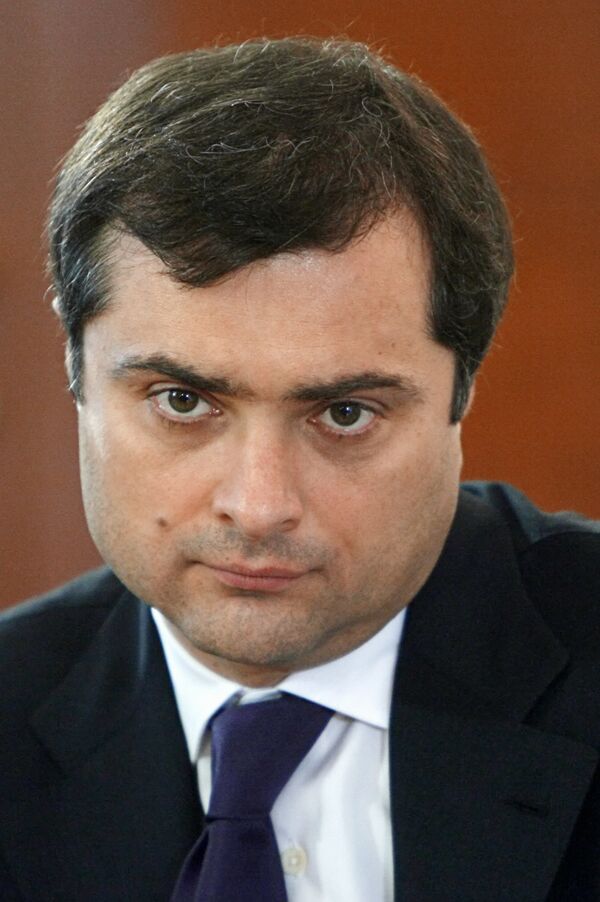The political turmoil in Kyrgyzstan was caused by a lack of solid democratic institutions, a chief Kremlin ideologist told RIA Novosti on Friday.
"The events in Kyrgyzstan are not just a political crisis, they are a tragic example of what happens to a society unable to create a strong state," a deputy head of the Russian presidential administration, Vladislav Surkov, said.
Kyrgyz President Kurmanbek Bakiyev had to flee the Kyrgyz capital Bishkek and later his traditional stronghold in the country's south following nationwide protests which broke out about five years after he came to power as a result of the 2005 Tulip revolution.
Unlike the generally non-violent overthrow of Askar Akayev and his family clan in 2005, at least 82 people were killed and over 1,500 injured during April riots.
Surkov compared the current situation in Kyrgyzstan to Russia's turbulent 1990s.
"[Such events happen when] instead of solid democratic institutions something else takes hold: clans instead of parties, corruption instead of economy, foreign loans instead of a treasury, disorder instead of elections, a crowd of looters instead of civil society and personal ambitions instead of the will of the majority."
He said that Russia has learned a "clear and simple" lesson from the Kyrgyz turmoil.
"A strong government [is needed] for a strong nation. By strong I mean fair, flexible, responsive and open to change," he said.
MOSCOW, April 16 (RIA Novosti)


